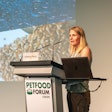A new US coalition aims to get ahead of GMO related legislation, uncertainty and confusion – and, while not the first of its kind, this effort directly involves petfood and feed organizations, in addition to human food groups. The Coalition for Safe Affordable Food (CSAF), announced last week, currently comprises 31 organizations, including the Pet Food Institute (PFI), American Feed Industry Association AFIA) and National Grain and Feed Association (NGFA).
The other member organizations are mainly human food ones, plus one or two related to biotechnology or phytopathology (the study of plant diseases – and yes, I had to look that up). Those fields had already launched their own respective GMO initiatives: Facts About GMOs, backed by the Grocery Manufacturers Association, and GMO Answers, from the Council for Biotechnology Information. (In fact, representatives of both efforts spoke last fall at the 2013 Joint Feed and Pet Food Joint Conference, the annual meeting of PFI and NGFA, so I imagine CSAF was already in the works by then.) Facts About GMOs and GMO Answers are both online portals for consumer education; CSAF's mission, at least going by the prominent statement on its website homepage, is "a federal legislative solution that will protect consumers by eliminating confusion and advancing food safety."
AFIA has gone on record about why it joined the coalition. “AFIA firmly believes there should be a federal GMO labeling solution protecting consumers by ensuring the safety of both food and feed ingredients produced through the use of modern agricultural biotechnology,” said Leah Wilkinson, AFIA director of ingredients, petfood and state affairs. “If a labeling solution is not agreed upon and even a few of the pending state initiatives are successful, the feed industry’s cost of doing business goes up, on-farm production costs go up and ultimately the consumer pays the price, with no important information in hand.”
Actually, while two recent, high-profile state initiatives were unsuccessful (California in 2012 and Washington last year), similar legislation has passed in Connecticut and Maine but is written to not take effect unless surrounding states agree and pass their own initiatives. Which could happen; Oregon is reportedly looking at a GMO labeling proposition this year, and most people involved in or watching the recent state legislative battles expect them to spread across the US.
Thus, CSAF's focus on US federal legislation. No matter what you may think of the US government, Food and Drug Administration (one of CSAF's thrusts is to affirm FDA as the US's "authority on the use and labeling of genetically modified feed and food ingredients") or GMO foods and ingredients themselves, it does seem clear that AFIA and its fellow CSAF members are at least taking a proactive approach. Personally, I find the coalition's name to border on marketing overreach, but most of its reasons for making this push make sense to me, especially one about informing consumers.
I know I don't completely understand GMO foods and ingredients, and I bet very few US consumers do. The California and Washington state ballot initiatives failed in part because they were poorly worded, so it was difficult for people to understand what they were being asked to vote on; massive pro and con marketing campaigns with conflicting information and various focuses only added to the confusion.
Clearly, what's missing in nearly all conversations and debates about GMOs is fact/science-based information that consumers can understand. Whether federal legislation can supply that is obviously a matter of great debate itself. (I, for one, have my doubts.) But at least CSAF is bringing the need great for consumer information and understanding to the conversation.
The latest issue of FoodSafety Magazine includes a very interesting guest editorial by Jay M. Pasachoff, PhD, a professor of astronomy at Williams College in Williamstown, Massachusetts, USA, on " pseudoscience" and human food. (You have to read the entire editorial to discover why an astronomy professor is writing for a food safety magazine.) He addresses GMOs by citing their long history, commenting that he learned as a child about the work of Luther Burbank in the 19th century to modify genes and develop "hundreds of kinds of plants, even the Idaho potato (in 1871)."
I hadn't been aware of this history, and while I still don't know enough to decide whether I agree with Pasachoff's arguments, I can comprehend what he's saying. If CSAF and similar initiatives can increase comprehension about GMOs, too, they will have had a positive effect even if they don't reach their ultimate goals.



















